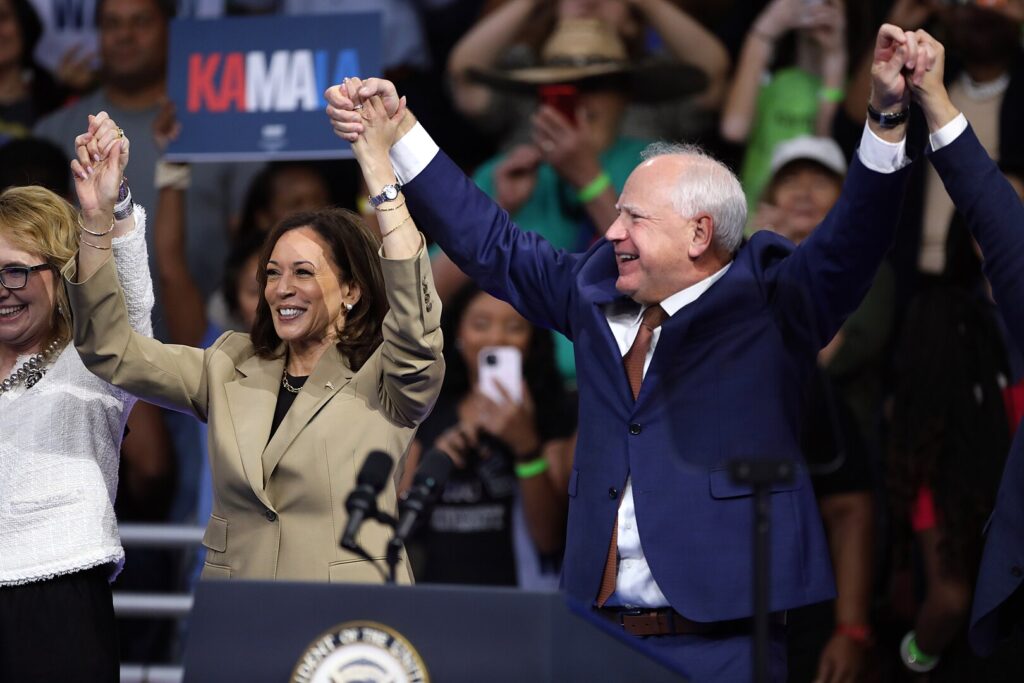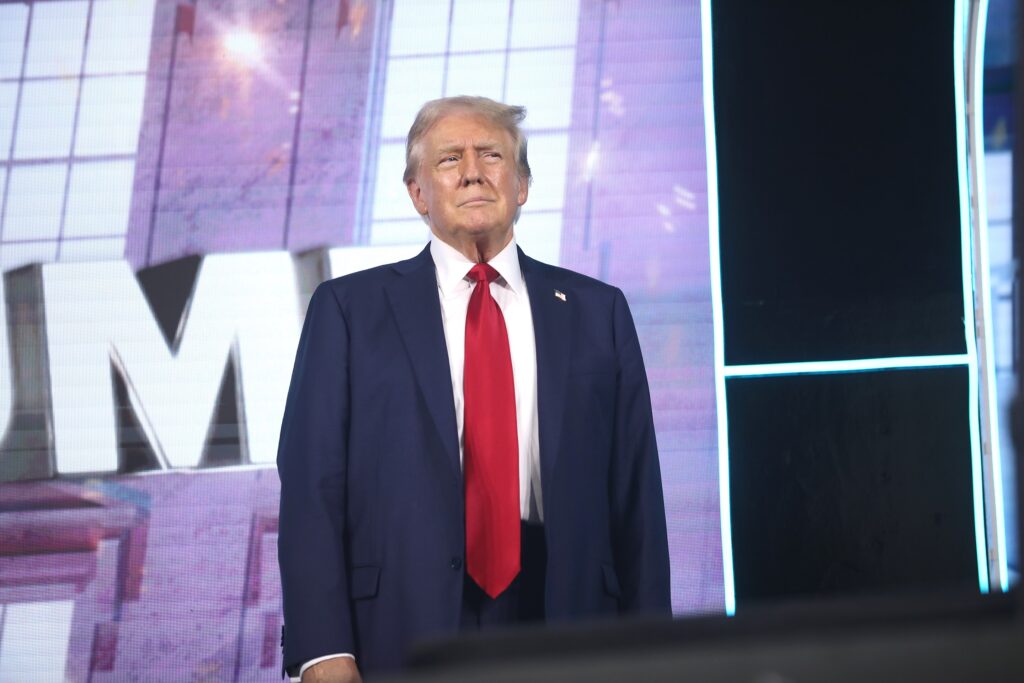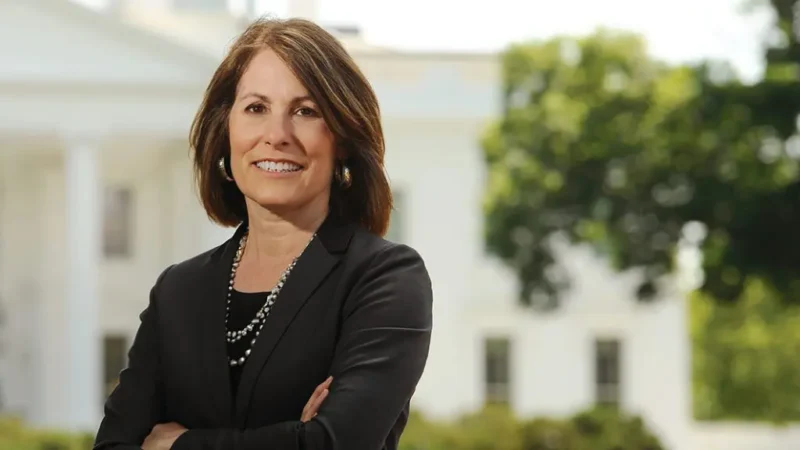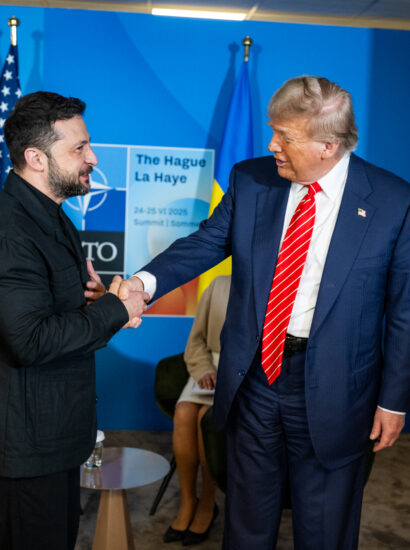“I am encouraged by the first statement Donald Trump made on election night: promises made. Promises kept,” says Valeria Huber, founder and president of the Institute for Women’s Health, who also worked in the previous Trump administration as chief of staff and senior policy advisor in the office of the assistant health secretary.
It is useful to put the elections that rounded off a month ago in perspective but we also talked to her about Kamala Harris’s ideology-oriented campaign and the importance of strong leadership.
It can be said that the election campaign started right when Trump decided to run again for the 2024 presidential election. After the debate, we saw a weak Joe Biden and after that he gave up running, choosing Kamala Harris. Do you think he decided on his own to drop out, or was it the Democratic core who sensed his exit?
I think that Democratic strategists saw that they were going to lose the election with Biden at the helm. I think they, and most of the world, see that he’s had a continuous diminished capacity.
I think it’s really good that he retired and will spend the rest of his life with his family and not leading the free world, regardless of policies. There’s just something about human respect that would require that.
I don’t think it was a volitional choice by him.
Everything that I’ve read points to that. I’m not at all surprised it took place, though – not at all. I was fully expecting it to take place.
How did you see the two candidates before the election?
If you look at the two candidates, they couldn’t be more different. I think it’s really interesting that almost a cardboard caricature of Kamala and Governor Walz was created that completely forgot that both of them had been involved in politics. Both of them had a track record. Both of them had spoken about certain issues, so it wasn’t like we really had to guess. But you had to set that cardboard caricature aside.
The same could be said of Trump: he had been president before, and he had been very outspoken about his policies, and he had a track record. The difference was, there was also a cardboard caricature created by the media and the left about him. One of those caricatures was designed to try to ensure that a candidate won, and another to ensure that a candidate lost.
My thought was that, as informed Americans going to the polls, they needed to move past the caricatures and look at the record.
I think we could have had a pretty good viewpoint of what a Harris–Walz administration would have looked like. There were a few things we knew for sure: when Kamala was in Congress, when she was Attorney General, and when she was Vice President, she made certain statements that were very inconsistent with what she had been saying during the campaign.

Harris and Tim Walz at a 2024 presidential campaign rally in Arizona (Photo: Gage Skidmore / Wikimedia Commons)
You are usually related to conservative leaders and governments in the rest of the world, how was the change with the Biden–Harris administration?
Yes, I am in regular communication with countries around the world that are traditionally conservative countries. I will say they should be strong allies with the United States, but anti-American sentiment had become very high in those countries because of the Biden–Harris administration that pushed ideology on them. I heard firsthand accounts of how Vice President Harris had been, oftentimes, front and center. If President Biden didn’t travel to those countries, Vice President Harris did. It was all ideological, and when you got below the surface, it was really difficult to have a substantive conversation because you moved away from the ideology, and there wasn’t a lot more in her policy chest.
At least this is what I was told by countries, and they gave me examples. Another thing I heard was that the ideology wasn’t going to just continue—I thought it would actually increase. When you looked at Harris’s record, for example, when she was a senator, depending on the year, she was either the most liberal left-leaning senator or the fourth most liberal.
When you compared that to Biden and Obama, when they were in the Senate, they were center-left. Comparing Harris to Biden and Obama, who were both quite left-leaning, they were nothing compared to the record that Harris had. And so I thought that was the ideological part.
Would you say that another key figure in this election was the image of strong leadership?
Yes. Just over the weekend before the election, someone very influential in one of the countries we work with sent me a text saying, “We’re praying for your election.” They also said, “We need a strong leader for America, that’s why we are praying that Trump will be elected.”
Many people had said there would not have been a war in Ukraine if it had been President Trump rather than President Biden. There may not have been what we were seeing in the Middle East because of the Abraham Accords, which had been a really good start. There were other examples. Even foreign presidents I talked to, who didn’t always agree with President Trump, respected his strong leadership and that he was carrying forth priorities of national security and international relations with them from a serious vantage point.
So those two things – ideology and leadership – were my biggest concerns if Kamala Harris had become President Harris.
Now, we know that Trump has won. What can we expect from his administration?
I am encouraged by the first statement Donald Trump made on election night: “Promises made. Promises kept.”
So just as he was committed to following through on all his campaign promises during his first term, I think we can expect that same determination this time. Few political leaders make that commitment and fewer still follow through during the course of their political tenure.

Donald Trump in July 2024 (Photo: Gage Skidmore)
We know that in any presidential administration, the people appointed to support the agenda of the President says a lot about what the next 4 years will look like. I’m encouraged by many of his appointees! Looking internationally, I believe the Trump foreign policy will be very different from the foreign policy under President Biden. Unfortunately, over the past four years, US foreign policy has been too focused on pushing progressive ideological agendas – agendas that are not supported by many Americans – and are not supported by the people in the countries where the agendas are being pushed. I believe you will see a new day under President Trump’s leadership!.
Finally, you are the founder and president of the Institute for Women’s Health, how would the situation of your institution have changed with the different administrations?
If it had been President Trump, he had promised to rejoin the Geneva Consensus Declaration. We had seen more countries join since he left, despite the fact that President Biden had vigorously opposed it. By the way, we very much appreciated Hungary being the secretariat.
If it had been a President Trump, then we thought that our work was going to be doubled, and we would have been able to work closely with the Trump administration to see good things happen in countries and the GCD grow. The Biden-Harris administration had been very antagonistic and had tried to stop it, doing the very things that the GCD was designed to protect against.
Under President Harris, we would have needed to redouble our efforts too because this was important.
But would there have been headwinds? Yes, there would have been.








[…] him, which might be suprising at first glance, but not so much when we look at their motives. As opposed to Kamala Harris, Trump is expert in populism and knew perfectly well what most people cared about. […]